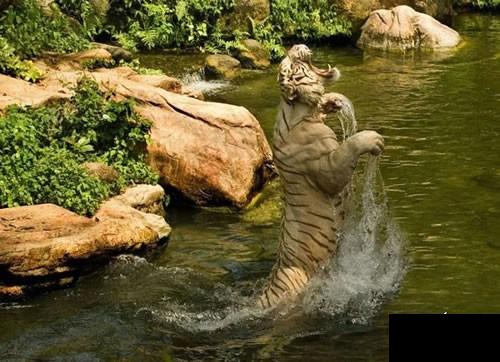To Crunch Or Not To Crunch, That Is the Question
There is a lot of crazy advice out there on the internet. After all, that’s one of the
main reasons that you guys look to me – for sound advice that is backed by credible
science.
One of the craziest recommendations that I am seeing lately is fitness “experts”
warning that crunches are DANGEROUS!
What?!
Yes, there is an entire camp of fitness “experts” that claim that crunches are bad for
your spine and that you should completely stop doing them. In fact, over a year ago
our online editor for muscleandfitness.com posted an article by a so-called fitness
expert that warned our readers against doing crunches. I was horrified when I
saw the article on our website and had the online editor remove it promptly. I was
shocked that anyone would be so idiotic to think that doing crunches is bad for your
back. That’s like warning people to stop doing curls because they are bad for your
elbows! But I quickly learned that this guy was not alone and that there is a whole
slew of fitness “experts” claiming the same ridiculous thing.
But don’t just take my word for it.
Luckily, the National Strength & Conditioning Association’s (NSCA) Strength and
Conditioning Journal published a review paper on whether or not the crunch is a
dangerous exercise. Here is a summary of what they found:
There is research showing that when you flex your spine forward, like you do when
you do a crunch, it can cause damage to the spinal discs.
However, all of this research was done in animal spines and in vitro! In vitro
basically means “outside the body”. So basically these studies were done in isolated
animal spines. There are many problems with this technique.
For starters, the majority of these were done with the cervical (neck) portion of pig
spines and not even the lower back portion. There is a big difference between the
spine in your neck and the spine in your lumbar (lower) back. A BIG difference!
Another problem is the fact that in the body there are muscles that support the
spine and take much of the load and reduce the stress on the spine and discs. There
are no muscles working with the spine in an isolated animal spine.
Another issue is that when you do a crunch you increase the pressure inside the
abdominal cavity. An increase in pressure inside the abdominal cavity reduces the
stress on the spine and discs. An isolated animal spine has no abdominal cavity
working with it and therefore no extra pressure to support it.
So most of these fitness “experts” claiming that crunches are bad for your spine are
making these conclusions are this ridiculous research in pig cervical spines. What
they forgot to read were all the studies showing that flexion of the spine is actually
beneficial to the discs, as the Strength & Conditioning Journal article points out.
Research shows that flexion of the spine increases nutrient delivery to the discs.
And research also shows that exercise programs involving spinal flexion have been
proven to reduce low back pain and increase flexibility of the spine. Not to mention
that the ONLY way to increase muscle hypertrophy of the major midsection muscles
– the rectus adbominis (the abs) and obliques as well as their strength is by doing
exercises with resistance that involve spinal flexion!
So if you read in a book, or magazine, or online that you should stop doing crunches,
get a good laugh, and ignore it. Crunches and other ab exercises that involve flexing
the spine are one of the healthiest things you can do for your back and your body.
In my opinion, I think that these fitness “experts” that warn against crunches are
just looking for excuses not to train their abs. And I’ll bet that the majority of them
have less than impressive abs.
Conditioning Journal published a review paper on whether or not the crunch is a
dangerous exercise. Here is a summary of what they found:
There is research showing that when you flex your spine forward, like you do when
you do a crunch, it can cause damage to the spinal discs.
However, all of this research was done in animal spines and in vitro! In vitro
basically means “outside the body”. So basically these studies were done in isolated
animal spines. There are many problems with this technique.
For starters, the majority of these were done with the cervical (neck) portion of pig
spines and not even the lower back portion. There is a big difference between the
spine in your neck and the spine in your lumbar (lower) back. A BIG difference!
Another problem is the fact that in the body there are muscles that support the
spine and take much of the load and reduce the stress on the spine and discs. There
are no muscles working with the spine in an isolated animal spine.
Another issue is that when you do a crunch you increase the pressure inside the
abdominal cavity. An increase in pressure inside the abdominal cavity reduces the
stress on the spine and discs. An isolated animal spine has no abdominal cavity
working with it and therefore no extra pressure to support it.
So most of these fitness “experts” claiming that crunches are bad for your spine are
making these conclusions are this ridiculous research in pig cervical spines. What
they forgot to read were all the studies showing that flexion of the spine is actually
beneficial to the discs, as the Strength & Conditioning Journal article points out.
Research shows that flexion of the spine increases nutrient delivery to the discs.
And research also shows that exercise programs involving spinal flexion have been
proven to reduce low back pain and increase flexibility of the spine. Not to mention
that the ONLY way to increase muscle hypertrophy of the major midsection muscles
– the rectus adbominis (the abs) and obliques as well as their strength is by doing
exercises with resistance that involve spinal flexion!
So if you read in a book, or magazine, or online that you should stop doing crunches,
get a good laugh, and ignore it. Crunches and other ab exercises that involve flexing
the spine are one of the healthiest things you can do for your back and your body.
In my opinion, I think that these fitness “experts” that warn against crunches are
just looking for excuses not to train their abs. And I’ll bet that the majority of them
have less than impressive abs.





No comments:
Post a Comment